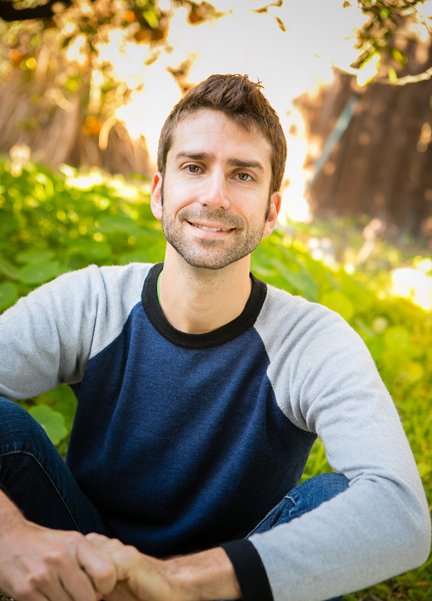
Yoga Month: Chakra of Connection
Welcome to Week 4 of Yoga Month at the University of Washington, where over 1500 UW faculty, staff, and students have committed to experience and explore the benefits of yoga practice. The main component of this year’s Yoga Month has been the focus on the seven chakras. Participants have be challenged to practice each week both on and off the mat and have been able to do so through the partnership of UW Recreation and Leela Yoga Studio, who’ve hosted yoga classes on all campuses.
For our final class this month, The Whole U is hosting a celebration of yoga on September 28 from noon to 1pm in the HUB ballrooms. Join us here!
This week’s focus is on the chakra of connection.
Connection
The seventh chakra resides at the crown of the head and is all about connection, recognition, and being a part of something greater. It involves our ability to remember that we are a part of a larger collective and are interwoven into the web of life. It also invites us into living mindfully throughout our daily interactions with self, others, and community/nature.
This center reminds us that if we only live for ourselves or forget that we belong to something more universal, we lose a certain aspect or our meaning and purpose. This area of the head correlates to thought vibration, is multicolored and relates to navigating a feeling of separation.
When this wheel is out of balance there might be an experience of being overly individualistic, a poor relationship with the natural world, and rigid beliefs. Physiologically there might be depression, confusion, apathy and migraines.
To cultivate more overall integration and connectedness, explore:
- Postures:

Corpse/Savasana: put on a gentle timer to let go of the task of tracking time. In this final posture, lay on the ground. If your lower back is uncomfortable, place a rolled blanket (like a tube) or your pillow (if it is long) under your knees. If that still doesn’t alleviate low back discomfort, bend your knees (if it works in your legs let one knee rest to the side of the other, knocked knees).
Ensure your limbs feel spacious from your side body. Theoretically, open palms help the shoulders relax, but check-in with your own physical structure. Cover your eyes. Allow your breath to be in the background and, unguided, rest. Once your timer rings, take a few moments to reawaken, move fingers, toes, hug your knees in and roll over to one side in a fetal pose. Pause for a moment before pressing back up to sit. In this seat reflect on how you feel post exploration. What has shifted? Gradually open your eyes and return to your day.
Take extra time in corpse posture to allow your other poses to settle and to savor this ability to soften, connect, and recalibrate every part of your being.
- Foods:
- Additional practices:
- Meditation
- Gratitude lists (at least 2x a week).
- Seek out landscapes and experiences that elicit awe.
- Volunteer to contribute to something outside of yourself.
- Journal: Track the three top thoughts that repeat and keep you separate from others in your life. How often do they show up? What are three thoughts you could replace them with? What might shift if you swapped them out for one full day?
This week, Yoga Month participants are encouraged to follow a weekly plan of their choosing:
Monday Eve: Make a plan for this week on which chakra or two you will nourish most. Make realistic commitments and remember that less is more. Buy any food or other supplies you need to be successful. Incorporate several sessions of supported relaxation to simply be and absorb your explorations.
Just because Yoga Month is drawing to a close doesn’t mean your practice has to stop—far from it! We hope that you enjoyed this month-long celebration and that what you’ve learned over the past weeks can continue to bring positive benefits to your life both on and off the mat.
To further your journey, join us for the Mindfulness & Courageous Self-Care: A Nurturing Retreat. You can register here.
Additionally, keep posting photos of yourself doing yoga and share it with us on Facebook, Instagram, Twitter, or email. When you do, you’ll receive a fabulous purple Whole U yoga mat! Be sure to tag your post #uwyoga.
Special thanks to yoga pose models May Lim (Department of Electrical Engineering) and Nate Panelo (Office of Minority Affairs & Diversity).
Namaste.
 Danny Arguetty, M.A., is the mindfulness program manager at the University of Washington, a yoga teacher (and teacher trainer), nutrition/life coach, and a lover of the environment. He is the author of Nourishing the Teacher and The 6 Qualities of Consciousness. Passionate about helping people flourish through mindfulness, wellness, and personal self-development, he has over a decade’s worth of experience in group facilitation, one-on-one coaching, and experiential teaching.
Danny Arguetty, M.A., is the mindfulness program manager at the University of Washington, a yoga teacher (and teacher trainer), nutrition/life coach, and a lover of the environment. He is the author of Nourishing the Teacher and The 6 Qualities of Consciousness. Passionate about helping people flourish through mindfulness, wellness, and personal self-development, he has over a decade’s worth of experience in group facilitation, one-on-one coaching, and experiential teaching.
Danny has guided workshops throughout the United States, led basic and advanced yoga trainings in the U.S. and India, and spoken at Facebook, Olson Kundig, and Gravity Payments (all in Seattle). He served as adjunct faculty at Williams College, leads a quarterly course on Intro to Mindfulness at UW, and is a faculty member at Kripalu Center for Yoga & Health.